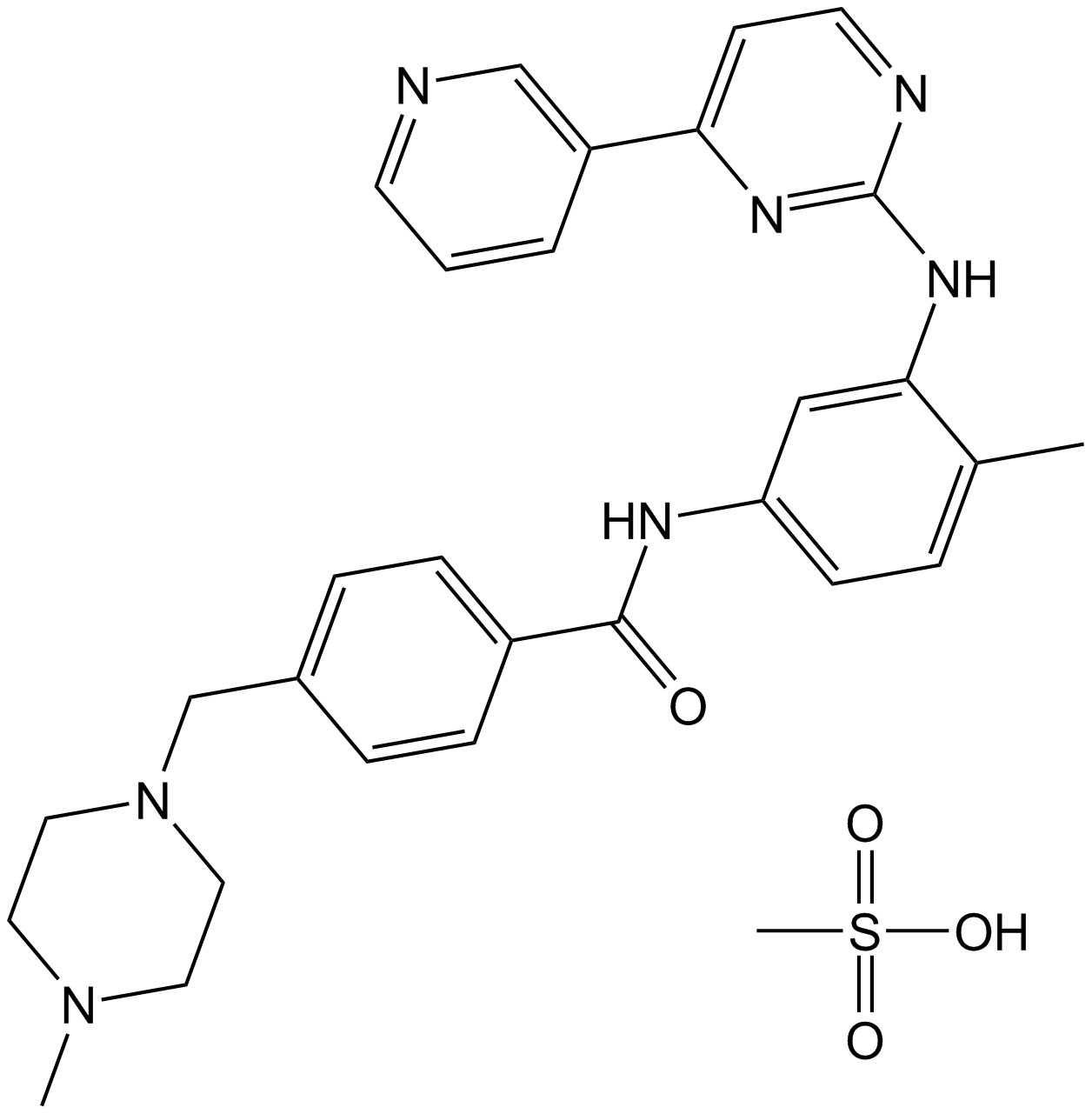Imatinib Mesylate (STI571) (Synonyms: CGP57148B, STI571) |
| Catalog No.GC11759 |
Imatinib Mesylate (STI571) (STI571 Mesylate) is a tyrosine kinases inhibitor that inhibits c-Kit, Bcr-Abl, and PDGFR (IC50=100 nM) tyrosine kinases.
Products are for research use only. Not for human use. We do not sell to patients.

Cas No.: 220127-57-1
Sample solution is provided at 25 µL, 10mM.
Imatinib mesylate is a tyrosine kinase inhibitor IC50 value of 100 nM, 100 nM, 600 nM for v-Abl, c-kit, PDGFR, respectively [1].
Tyrosine kinase is an enzyme which is a subclass of protein kinase and plays an important role in transferring a phosphate group from ATP to a protein in cells. It is shown that tyrosine kinase plays a pivotal role in the management of disorders in which activation of c-Abl, PDGFR, or c-Kit signaling. Recently, the role of tyrosine kinases in the modulation of growth factor signaling are received more and more attention and gradually become an especial important target [2].
Imatinib Mesylate is a specific tyrosine kinase (abl, c-kit, and PDGFR) inhibitor and is reported to sensitize cells to radio- or chemo-therapy. When tested with Y-79 and WERI-RB-1 Rb cell lines, imatinib mesylate treatment decreased the cell proliferation and invasion with the concentration of 10 μM [3]. In osteoblast cells, administration of imatinib mesylate decreased osteoclast development via stimulating differentiation, inhibiting proliferation and survival [4].
In dog model with mast cell tumor, administration of imatinib mesylate at a dose of 10 mg/kg daily for 1-9 weeks reduced tumor growth via inhibiting tyrosine kinase [5].
References:
[1].Buchdunger, E., et al., Selective inhibition of the platelet-derived growth factor signal transduction pathway by a protein-tyrosine kinase inhibitor of the 2-phenylaminopyrimidine class. Proc Natl Acad Sci U S A, 1995. 92(7): p. 2558-62.
[2].Zhou, Y., et al., The multi-targeted tyrosine kinase inhibitor vandetanib plays a bifunctional role in non-small cell lung cancer cells. Sci Rep, 2015. 5: p. 8629.
[3].de Moura, L.R., et al., The effect of imatinib mesylate on the proliferation, invasive ability, and radiosensitivity of retinoblastoma cell lines. Eye (Lond), 2013. 27(1): p. 92-9.
[4].O'Sullivan, S., et al., Imatinib mesylate does not increase bone volume in vivo. Calcif Tissue Int, 2011. 88(1): p. 16-22.
[5].Isotani, M., et al., Effect of tyrosine kinase inhibition by imatinib mesylate on mast cell tumors in dogs. J Vet Intern Med, 2008. 22(4): p. 985-8.
Average Rating: 5 (Based on Reviews and 25 reference(s) in Google Scholar.)
GLPBIO products are for RESEARCH USE ONLY. Please make sure your review or question is research based.
Required fields are marked with *




















